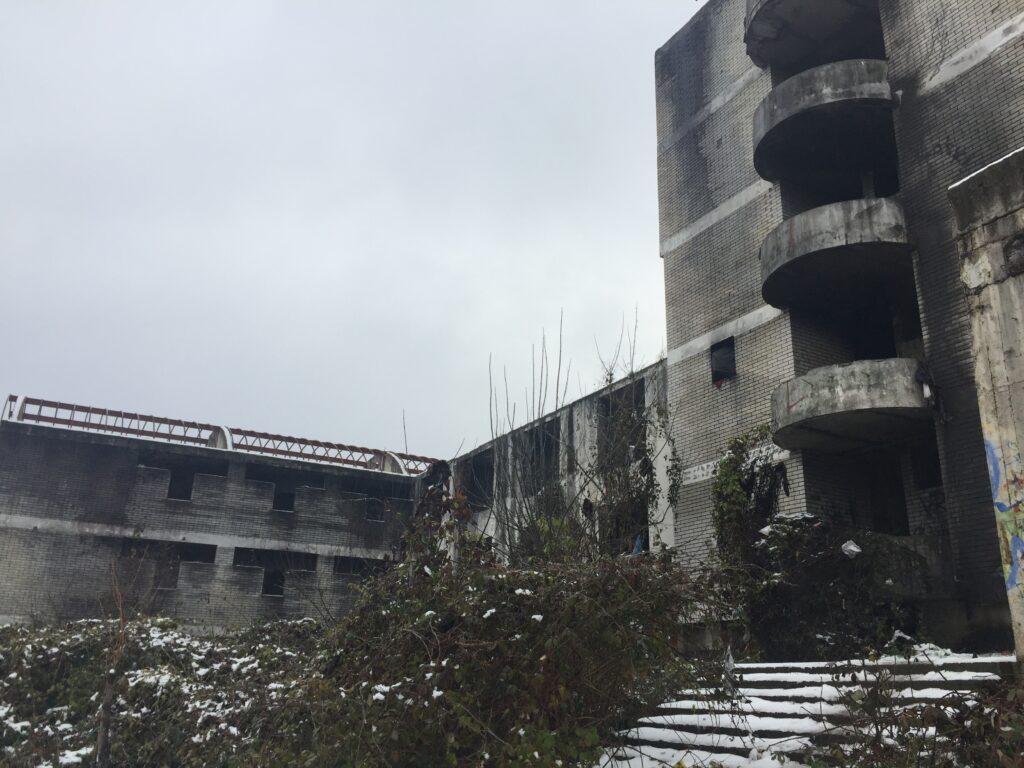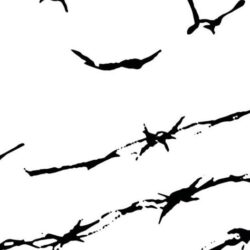
EN: „They said stop. I ran. Then they fired.“ – A group of refugees talks about a pushback experience
FR: „Ils ont dit stop. J’ai couru. Puis ils ont tiré.“ – Un groupe de réfugiés parle d’une expérience de pushback
(DE / EN / FR)
DE: Vier der neun Männer, über welche in vorigem Beitrag berichtet wurde, haben sich am Sonntag, dem 29. November 2020 aufgemacht, um „The Game“ (die Überquerung der bosnisch-kroatischen Grenze) zu versuchen. Vier weitere Männer seien mit dabei gewesen, insgesamt 8 Personen. Einer der Männer, der dabei war erzählte, dass die Gruppe von Männern nach dem Überqueren der Grenze zu Kroatien plötzlich von Polizeiautos eingeschlossen wurde. Er selbst habe versucht wegzulaufen, die Polizei habe ihn angeschrien, er solle stehen bleiben. Als er dennoch wegrannte, schossen sie in seine Richtung: „Sie sagten Stopp. Ich rannte. Dann schossen sie.“ Der Mann erzählte weiter, er sei nicht von einer Kugel getroffen worden, jedoch auf den Boden gefallen. Die Polizist*innen hätten ihn mehrmals mit einem Stock auf den Kopf geschlagen. Ausserdem hätten sie ihn ebenfalls mehrmals seitlich ins Bein getreten, als er bereits am Boden gelegen habe. Der Mann meinte, sein Bein würde nun fünf Tage später immer noch stark schmerzen. Die kroatische Polizei hätte anschliessend allen befohlen, Schuhe und Kleider abzugeben. Sie liessen ihnen nur die Unterwäsche und ein T-Shirt.
Dann hätte die Polizei gemäss dem Mann vor den Augen der betroffenen Menschen ein Feuer gemacht und all ihre Sachen darin verbrannt.
Auf der Polizeiwache hätten sie ausserdem Fotos von jeder einzelnen Person gemacht und ihnen ein Papier zum Unterschreiben gegeben, auf welchem sie angeben mussten, aus welchem Land sie kamen. Laut dem Mann, der mir seine Erfahrung erzählte, steckte die kroatische Polizei sie anschliessend alle in ein „kleines Auto“. Es seien um die 25 Personen in diesem Auto gewesen. Dann seien sie losgefahren. Die Fahrt habe ungefähr 6-7 Stunden gedauert. Die Menschen hätten sich im Auto übergeben, übereinander drüber. Als sie anhielten, habe die Polizei die Menschen aus dem Auto rausgelassen und gesagt: „Los, rennt.“
Einige vom Migrant Solidarity Network sind derzeit in der bosnischen Stadt Bihać an der Grenze zu Kroatien. Willst du ein hilfreiches Zeichen gegen die Folgen von Abschottung, Überwachung, Pushbacks und Entmenschlichung setzen und dein Geld teilen für Nahrungsmittel, Kleider und Schuhe für (geflüchtete) Migrant*innen? Sie werden dein Geteiltes vor Ort zugänglich machen. Einzahlungen an das Konto von Bleiberecht Bern, IBAN: CH72 0900 0000 6024 4887 5 (Vermerk Bihać).
EN: Four of the nine men reported in the previous article left on Sunday, November 29, 2020, to attempt „The Game“ (crossing the Bosnian-Croatian border). Four other men were reportedly with them, for a total of 8 people. One of the men who was there told me that after crossing the border with Croatia, the group of men was suddenly surrounded by police cars. He himself tried to run away, but the police shouted at him to stop. When he still ran away, they shot in his direction: „They said stop. I ran. Then they fired.“ The man went on to say that he was not hit by a bullet, but that he fell to the ground. The police officers hit him several times on the head with a stick. They also kicked him several times in the side of the leg when he was already lying on the ground. The man said that his leg still hurt a lot five days later. The Croatian police then ordered everyone to give up their shoes and clothes. They left them only their underwear and a T-shirt.
Then, according to the man, the police built a fire in front of the people concerned and burned all their belongings in it.
At the police station, they also took pictures of each person and gave them a paper to sign, on which they had to indicate which country they came from. According to the man who told me his experience, the Croatian police then put them all in a „small car“. There were about 25 people in this car. Then they drove off. The trip lasted about 6-7 hours. The people threw up in the car, on top of each another. When they stopped, the police let the people out of the car and said, „Go, run.“
Some people of the Migrant Solidarity Network are currently in Bihać at the Bosnian-Croatian Border. Do you want to set a helpful sign against the consequences of isolation, surveillance, pushbacks and dehumanization and share your money for food, clothes and shoes for People on the move? They will make your shared accessible on the ground. Payments to the account of Bleiberecht Bern, IBAN: CH72 0900 0000 6024 4887 5. Note Bihać.
FR: Quatre des neuf hommes signalés dans le rapport précédent se sont mis en route pour essayer „The Game“ (traverser la frontière bosno-croate) le dimanche 29 novembre 2020. Quatre autres hommes auraient été avec eux, soit un total de 8 personnes. L’un des hommes qui s’y trouvait a raconté qu’après avoir traversé la frontière avec la Croatie, le groupe d’hommes a soudainement été encerclé par des voitures de police. Il a lui-même essayé de s’enfuir, mais la police lui a crié de s’arrêter. Quand il s’est encore enfui, ils ont tiré dans sa direction : „Ils ont dit stop. J’ai couru. Puis ils ont tiré.“ L’homme a poursuivi en disant qu’il n’avait pas été touché par une balle, mais qu’il était tombé à terre. Les policiers l’ont frappé plusieurs fois à la tête avec un bâton. Ils lui ont également donné plusieurs coups de pied sur le côté de la jambe alors qu’il était déjà à terre. L’homme a dit que sa jambe était encore très douloureuse cinq jours plus tard. La police croate a alors ordonné à tout le monde de rendre ses chaussures et ses vêtements. Ils ne leur ont laissé que leurs sous-vêtements et un T-shirt.
Ensuite, selon l’homme, la police a allumé un feu devant les personnes concernées et y a brûlé tous leurs biens.
Au poste de police, ils ont également pris des photos de chaque personne et leur ont remis un papier à signer, sur lequel ils devaient indiquer de quel pays ils venaient. Selon l’homme qui m’a raconté son expérience, la police croate les a ensuite tous mis dans une „petite voiture“. Il y avait environ 25 personnes dans cette voiture. Puis ils sont partis. Le voyage a duré environ 6-7 heures. Les gens ont vomi dans la voiture, les uns sur les autres. Quand ils se sont arrêtés, la police a laissé les gens sortir de la voiture et leur a dit : „Allez, courez.“
Certains membres du Migrant Solidarity Network sont actuellement présents à Bihać à la frontière bosno-croate. Vous voulez mettre un signe utile contre les conséquences de l’isolement, de la surveillance, des pushbacks et de la déshumanisation et partager votre argent pour la nourriture, les vêtements et les chaussures des migrant.e.s (en fuite) ? Ils rendront votre partage accessible sur place. Versements sur le compte de Bleiberecht Bern, IBAN: CH72 0900 0000 6024 4887 5. Note Bihać
